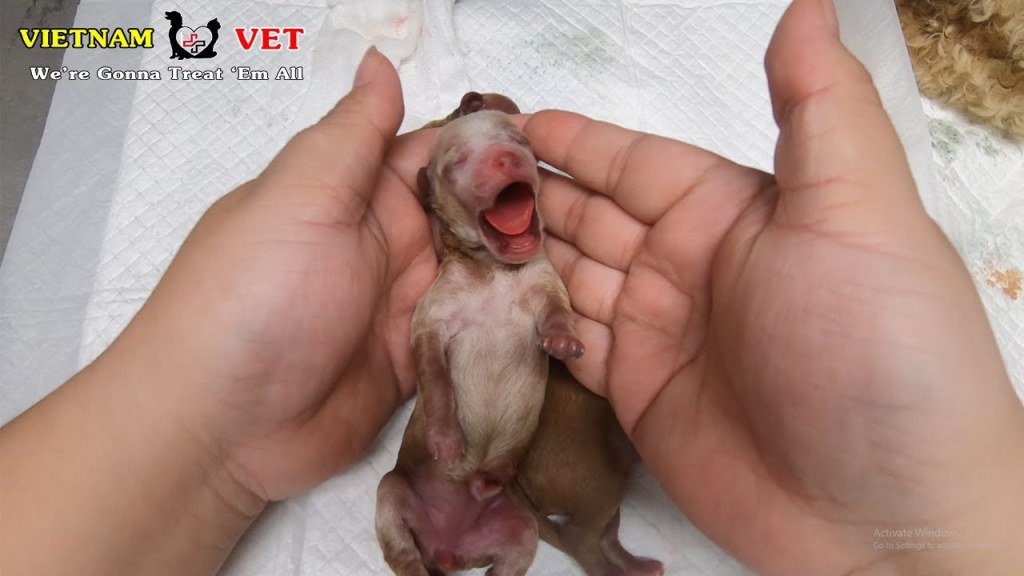Captivating Cries Of Newborn Puppies: Uncover The Heartwarming Whining
Newborn Puppies Whining: Understanding the Behavior of Young Canines
Hello, Puppies Lover! Are you experiencing the adorable yet puzzling behavior of newborn puppies whining? You’re not alone. Many dog lovers find themselves concerned or confused when their furry companions begin to whine incessantly. In this article, we will delve into the world of newborn puppies and explore the reasons behind their whining. By gaining a deeper understanding of this behavior, you’ll be better equipped to care for and communicate with your young canines.
Introduction
As a responsible pet owner, it is crucial to comprehend the behavior of newborn puppies, especially when it comes to their vocalizations. Whining is a common sound that puppies make, and it serves various purposes. In this section, we will provide an overview of newborn puppies whining, including the reasons behind it and when it typically occurs.
2 Picture Gallery: Captivating Cries Of Newborn Puppies: Uncover The Heartwarming Whining


What is Newborn Puppies Whining?
Newborn puppies whining refers to the high-pitched vocalization they make, often characterized by a distressed or needy tone. It is one of the primary ways in which puppies communicate their needs and emotions. Understanding the different types of whines and their meanings can help you decipher what your puppies are trying to convey.
Who Whines?
All newborn puppies whine, regardless of breed or size. It is an instinctual behavior rooted in their development and survival. Whether they are purebred or mixed, whining is a natural part of their early lives. However, the intensity and frequency of whining may vary between individuals.
When Do Puppies Whine?

Image Source: ytimg.com
Newborn puppies start whining shortly after birth. It is their way of expressing discomfort, hunger, or a need for attention. As they grow, whining continues to be a prominent vocalization until they develop other means of communication, such as barking or growling. It is important to note that excessive or persistent whining may indicate an underlying issue that requires attention.
Where Do Puppies Whine?
Puppies whine wherever they are, be it in their whelping box, a designated area, or in the presence of their mother and littermates. Whining is not limited to specific locations but rather serves as a universal means of communication. Understanding the context and environment in which whining occurs can provide valuable insights into your puppies’ needs.
Why Do Puppies Whine?
Puppies whine for various reasons, including hunger, discomfort, fear, or seeking attention. Hunger is a primary motivator for whining, as puppies rely on their mother’s milk for nourishment. They may also whine when they feel cold, lonely, or in pain. Additionally, puppies may whine to solicit attention and affection from their human caregivers or to communicate their need to eliminate waste.
How Do Puppies Whine?
Puppies produce whining sounds by expelling air through their vocal cords, resulting in a high-pitched noise. The tone and intensity of their whines may vary depending on the situation and their emotional state. Puppies may also incorporate body language, such as pawing, licking, or nuzzling, to further convey their messages.
Advantages and Disadvantages of Newborn Puppies Whining

Image Source: ytimg.com
While whining is a natural behavior for newborn puppies, it is essential to understand both the advantages and disadvantages it may present. By evaluating the pros and cons, you can better manage and respond to your puppies’ whining.
Advantages of Newborn Puppies Whining
1. Communication: Whining allows puppies to communicate their needs and emotions effectively, helping you understand and respond to their requirements promptly.
2. Bonding: Through whining, puppies form emotional connections with their caregivers, promoting a strong bond between humans and canines.
3. Survival: Whining is an instinctual behavior that helps newborn puppies ensure their survival by alerting their mother or caregivers to their needs.
Disadvantages of Newborn Puppies Whining
1. Distress: Excessive or persistent whining can indicate distress or discomfort in puppies. It is crucial to address the underlying cause to ensure their well-being.
2. Sleep disruptions: Puppies’ whining during the night can disrupt both their sleep and yours. Consistent training and meeting their needs can help reduce nighttime whining.
3. Dependency: Overindulging puppies’ whining demands may lead to dependency and the development of undesirable behaviors in the future.
Frequently Asked Questions (FAQs)
1. Why do newborn puppies whine at night?
Newborn puppies may whine at night due to hunger, discomfort, or a need to eliminate waste. Ensuring their basic needs are met before bedtime can help alleviate nighttime whining.
2. How can I distinguish between different types of whines?
Each whine type may have distinct characteristics and accompanying body language. Observing your puppies closely and paying attention to their context can help you differentiate between hunger, discomfort, or attention-seeking whines.
3. Should I always respond to my puppies’ whining?
While it is essential to address your puppies’ needs, it is equally important to teach them independence and self-soothing. Responding selectively and gradually reducing their reliance on whining can help foster their overall development.
4. Can excessive whining be a sign of a health issue?
Yes, excessive or sudden changes in whining behavior can indicate underlying health problems. If you notice a significant increase or any other concerning symptoms, consult with a veterinarian to rule out potential health issues.
5. How can I discourage excessive whining in my puppies?
Consistent training, meeting their basic needs promptly, and gradually teaching them alternative means of communication, such as barking or using a bell, can help reduce excessive whining in puppies.
Conclusion
In conclusion, understanding newborn puppies’ whining is crucial for their proper care and communication. By recognizing the reasons behind their whining, you can better respond to their needs and foster a strong bond. Remember to address any concerns or excessive whining promptly, ensuring the well-being and happiness of your furry companions.
Remember, Puppies Lover, a well-informed and empathetic approach is key to nurturing your newborn puppies as they grow and develop into confident and well-adjusted adult dogs.
Final Remarks
This article serves as a comprehensive guide to understanding newborn puppies whining. However, it is essential to remember that every puppy is unique, and their behavior may vary. If you have any concerns regarding your puppies’ whining or overall well-being, always consult with a qualified veterinarian or animal behaviorist.
Happy bonding with your adorable newborn puppies!
This post topic: Puppies



